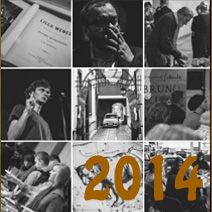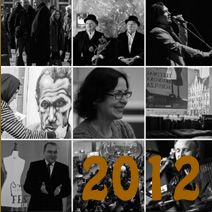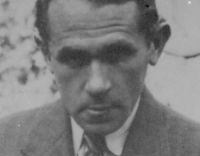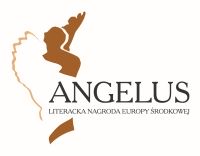The third day of Bruno Schulz. Festival proved that reality can be for literature inspiring, provocative, but sometimes also disturbing. And the main characters of the day were these who spoke about it: Zbigniew Mentzel and Serhij Żadan.

The festival Wednesday began from high school “lessons under an hourglass”. Michał Nogaś spoke to the inteested students about the profession of a journalist, whereas Adam Poprawa about Stanisław Barańczuk’s poetry (which will be the topic of the science session, which begins on Thursday). Who knows, maybe among the listeners were future journalists, writers or poets…?

In the afternoon we moved to Ossolineum, where our first guest was Zbigniew Mentzel – in the opinion of opening the meeting Marcin Baran, the director of Bruno Schulz, Festival “one of the most remarkable Polish writers”. However, Michał Nogaś, who chaired the meeting, did not began the discussion from praising paeans, but… pretentions. Because why there is so little Mentzel in Polish literature (The newest book “Spadający nóż” (“Falling knife” – red translate) was published eleven years after the last one)? The answer turned out to be trivially simple; it is hard to accord different parts of life it this way, to be good at everything. Moreover, Mentzel is for example an expert on stock market and he did not hesitate to share his knowledge with the listeners. For example, did you know that Polish stock exchange is in worse condition that in Mongolia?

Stock exchange is also firmly present in the writer’s newest book, because (how he personally admitted) he is not very good at making things up, so he just writes the truth – understood however not necessarily as a perfect reflection of reality. Consequently, in “spadający nóż” we will find elements, which we can acknowledge as autobiographic; for example representation of sickness, which wearied the writer. Nevertheless, the novel is mostly an observation of Polish reality transformation through last three decades – a transformation, which is not perfect, but even though, it brought more good than bad.
Zbigniew Mentzel revealed also, what he does now. Therefore, as an editor of Leszek Kołakowski’s magazines, after years of publisher’s inclinations, he finally agreed to write his biography. Philosopher, who he knew and admired, emanating with kindness, which however never changed into homely decency. The author of “Spadający nóż” even read a fragment of a planned biography, starting with meaningful – in the context of words spoken by Marcin Baran at the beginning of the meeting – words: “eminent, the most eminent – Leszek Kołakowski hated this kind of phrases”.

The day winded up by a meeting with last year’s Angelus Central European Literature Award laureate Serhij Żadan for the novel “Mezopotamia”. The author presented himself to the participants of Bruno Schulz. Festival the day before as a front man of a rock and roll band Sobaki v kosmose – and today he revealed himself in a new incarnation: a prosaic, poet, translator and a commentator of reality. And for sure, what not everyone know, an actor, since Żadan played in a movie (it doesn’t matter that his role lasted ten seconds). The most important topic turned out to be the present day Ukraine – because when there is war, you cannot talk only about literature. A writer, an active participant of euromaidan, shared with his opinion about this civilization gesture and lack of Ukrainian culture in Donbas (because it is difficult to promote your products, when someone else controls the market). But he is also skeptical towards Ukrainanisation: even people on daily basis talking in Russian are a part of Ukrainian culture. He mentioned also about Ukrainian culture institutions, which put themselves in the position of a beggar: They ask for a lot, do not give anything in return, and it isn’t a constructive situation.
However, in order to not totally diverge from the topic of literature and the festival patron, Serhij Żadan spoke about his relations with Drohobycz. From the time, when he was there a few years ago on a Brunon Schulz Festival, he made a lot of friends and written a lot of poems. What is more, he even plans to publish a tome with poetry about Drohobycz, which he wants in Poish translation.
Ewa Dąbrowska translated by Stanisław Borys





